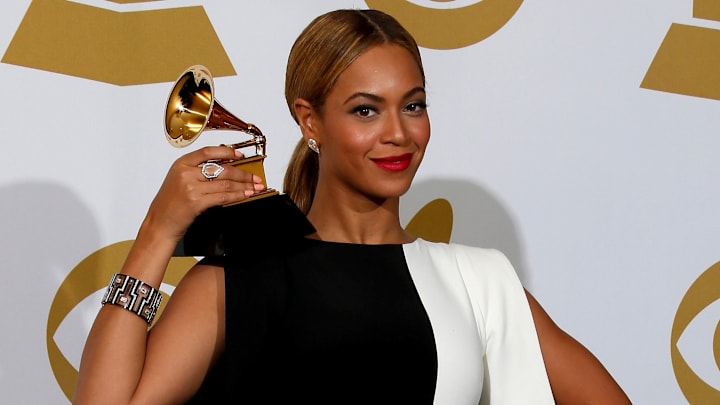A Grammy snub refers to the situation when an artist, album, or song that is widely regarded as deserving of recognition or an award at the Grammy Awards is either overlooked, under-awarded, or completely excluded from nominations or wins.
The Grammy Awards, as the most prestigious honors in the music industry, are often seen as a significant measure of success, artistic achievement, and cultural influence. When an artist or work is considered a “snub,” it typically means that their contribution to music was not acknowledged, often despite its popularity, critical acclaim, or historical impact.
A Grammy snub can be a major point of contention because the Grammy Awards often define an artist's legacy. Winning or being nominated for a Grammy can bring financial success, global recognition, and industry respect, so when an artist or their work is snubbed, it can feel like a missed opportunity to receive the acknowledgment that they deserve.
These great musical artists were snubbed from win Grammy Awards they deserved
Snubs often spark discussions about the Grammy's credibility, fairness, and relevance in reflecting the tastes and diversity of contemporary music.
Ultimately, a Grammy snub is not just an absence of a nomination or award—it can serve as a symbol of how certain artists or genres are underappreciated or misrepresented by the industry. It can also highlight how the Grammy process doesn't always align with the broader public's perception of what is "the best" in music, resulting in moments that continue to stir debate long after the awards ceremony. Here are some snubs that are still considered the most talked about.
The Weeknd - After Hours (Album of the Year, Record of the Year, Song of the Year - 2021)
The Weeknd’s After Hours was one of the most successful and influential albums of 2020. Featuring hits like “Blinding Lights” and “Save Your Tears,” it dominated the charts and received critical acclaim but was shockingly shut out of the major Grammy categories. His exclusion sparked outrage, leading many to question the Grammy process and the bias against popular, genre-defying artists.
Kanye West - My Beautiful Dark Twisted Fantasy (Album of the Year - 2011)
My Beautiful Dark Twisted Fantasy is often considered one of the greatest albums of the 21st century, receiving universal acclaim for its innovation, lyricism, and production. Despite this, it lost Album of the Year to Arcade Fire's The Suburbs, a decision that many still consider one of the most perplexing and unjust in Grammy history. Kanye's album influenced an entire generation and deserved recognition for its cultural impact.
Beyonce' - Lemonade (Album of the Year - 2017)
Lemonade was a groundbreaking album that showcased Beyoncé's range as an artist, blending pop, rock, R&B, and hip-hop while addressing themes like infidelity, empowerment, and black identity. Despite its critical success, it lost Album of the Year to Adele's 25, sparking controversy as many felt Lemonade was more deserving due to its cultural relevance and innovative sound.
Frank Ocean - Channel Orange (Album of the Year - 2013)
Frank Ocean's Channel Orange was a genre-defying album that blended R&B, jazz, and electronic elements and addressed complex topics like love, identity, and societal pressures. Despite its critical acclaim, Channel Orange was overlooked at the 2013 Grammys in favor of Mumford & Sons' Babel, a decision that left many fans and critics frustrated given Ocean's breakthrough in both music and culture.
Tupac Shakur - Me Against the World (Best Rap Album, Album of the Year - 1996)
Tupac's Me Against the World is one of the most important albums in hip-hop history, addressing themes of struggle, love, and resilience. Despite being one of the best-selling albums of 1995 and including the iconic “Dear Mama,” Tupac was snubbed in multiple categories. His exclusion from the 1996 Grammys highlighted the industry's dismissal of hip-hop and its failure to recognize Tupac’s cultural impact.
Selena - Selena (Best Latin Pop Album, Album of the Year - 1995)
Selena’s self-titled album was a breakthrough in Latin music, and she was on the verge of mainstream crossover when she was tragically murdered in 1995. Her album was not nominated for Album of the Year or Best Latin Pop Album at the 1995 Grammys, despite her undeniable talent and influence on both Latin and pop music. Her death added to the perceived injustice of her lack of recognition.
A Tribe Called Quest - The Love Movement (Best Rap Album - 1999)
A Tribe Called Quest’s The Love Movement was a standout album in the late 90s, offering a more introspective and mature take on hip-hop. Despite being critically acclaimed and influential to the genre, it was overlooked in favor of other rap albums, reflecting the industry's failure to honor the group's lasting impact on hip-hop culture.
Nicki Minaj - Pink Friday (Best New Artist - 2012)
Nicki Minaj’s debut album Pink Friday was a massive commercial and critical success, producing hits like “Super Bass” and “Moment 4 Life”. Despite dominating the charts and being recognized as one of the most innovative hip-hop artists of the time, Minaj was snubbed for Best New Artist at the 2012 Grammys. Instead, she lost out to Esperanza Spalding, a decision that sparked outrage and is still seen as a major oversight in the Grammys' history.
These snubs are among the most discussed and debated in Grammy history, as they highlight how the awards sometimes overlook groundbreaking, influential, and highly deserving artists and albums. The decisions continue to be a source of frustration for fans and critics alike.
